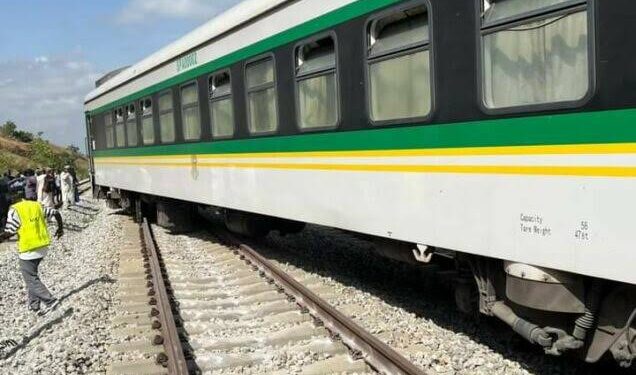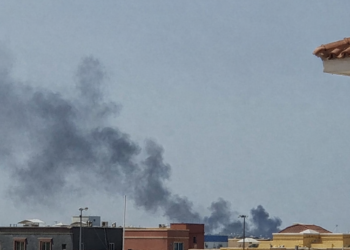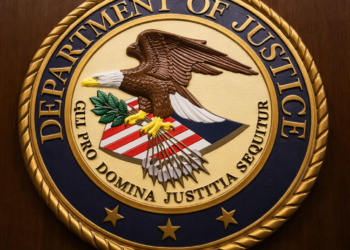Just a day after news broke of a train derailment near Jere station, the Nigerian Safety Investigation Bureau (NSIB) has confirmed they’ve launched a full investigation. Thankfully, no injuries were reported, but the incident raises serious questions about the state of our railway system.
What’s They Are Saying
The passenger train, KA2/loco 2702, was en route to Abuja from Rigasa with a whopping 685 passengers and crew onboard. According to the NSIB, everything seemed normal until the train approached Jere station, traveling at a reported 90 km/h. However, as the train navigated a switch point, a crucial junction on the tracks, disaster struck.

The baggage van and a passenger coach lurched off the rails, being dragged a concerning 86 feet before coming to a halt. Alarmingly, the NSIB report mentions “preliminary fact-finding,” hinting this might not be the first time such an incident has occurred.
Despite the dramatic scene, it appears the passengers had a stroke of good fortune. Everyone managed to disembark safely and were eventually transported to Abuja on a separate locomotive and remaining carriages. While a slight delay occurred, it could have been much worse.
“Thankfully, no passengers or crew members were injured. Following the incident, all passengers safely disembarked and were transported with the rear locomotive and the remaining 8 coaches to Abuja, where they arrived at 12:32 PM, slightly behind the scheduled arrival time of 10:17 AM.
“The front locomotive, the derailed BVA, the derailed coach, and another unaffected coach remained at the site of the incident,”
Why It Matters
The investigation, as outlined by the NSIB, seems comprehensive. They’ll be scrutinizing factors like train speed, track conditions, the mechanical state of the train itself, and even the crew’s adherence to protocol. This meticulous approach is commendable, but a more cynical observer might wonder, shouldn’t these aspects be constantly monitored to prevent such incidents in the first place?
The NSIB isn’t going it alone. They’ll be working closely with the Nigerian Railway Corporation (NRC) to analyze data from the On-Train Monitoring Recorder (OTMR) and other vital sources.
The NSIB boss, Alex Badeh, has assured the public that safety is their top priority. They’re dedicated to identifying the cause and taking necessary steps to prevent similar incidents from happening again. This begs the question: has enough been done in the past?
“The safety of passengers and crew is paramount, and NSIB is committed to ensuring that all necessary measures are taken to prevent reoccurrence and improve the safety of our railway systems,” NSIB boss, Alex Badeh, was quoted as saying.
The NSIB is urging the public to be patient and avoid speculation until the investigation is complete. Only then will we have a clear picture of what went wrong and how to move forward.
Bottom Line
Nigerians deserve safe and reliable railway transportation. This incident, while thankfully without injuries, serves as a constant reminder of potential vulnerabilities. The NSIB’s investigation must be thorough and transparent, addressing not just immediate causes but also the broader issue of railway infrastructure and maintenance.
Only then can we move forward with confidence, knowing our trains are taking us to our destinations, not on a detour to disaster.

















